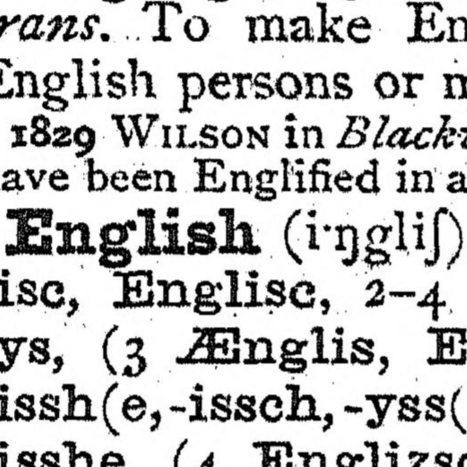I see there are no comments here yet.
I am an English professor, and have experience in magazine, book, and test editing. I often comment on grammar related subs on “that other social media site”, but I’m trying to help Lemmy grow by contributing here instead. But to do that, there needs need to be posts. : )
The way to get a community growing is to start posting. I’m going to start some seed topics, so please comment on them and add your own. Questions are good too.


Perfect, I’ve got a question for you. Whenever I read articles I notice that many write, for example, internalize. With ‘z’ instead of an ‘s’, there are many such words which end on ‘-lize’ where I would expect an ‘s’. My understanding thus far was, that American English uses the ‘z’ and British English the ‘s’ but is that always the case? Can I always change it to the version with ‘s’?
Look in the Oxford English Dictionary (OED) and they’ll usually have -ize as the preferred spelling. The tendency in the 19th century was for American English with the Webster’s Dictionary to go with -ize and in Britain it was mixed. In the late 20th century, the BBC and the Guardian began to make the -ise spelling more mainstream in Britain. With the Internet, both spelling styles began to appear everywhere. However, its never been a clear cut rule. American English has words like “advise,” “surprise,” “compromise,” and “despise”.
I’m often using a variety of computers and apps throughout the day the have me going back and forth between dictionaries and spellings, so I find myself using a mishmash of both. I suspect that’s happening with a lot of people. When I am doing a project, I just note with style I need to use and remain consistent. Other then that all bets are off.
The “-ise” spelling is the one usually given as primary by the Cambridge dictionary, while the Oxford dictionary prefers “-ize”. Oxford’s reason for this is etymological. They give an interesting explanation under the entry -ize. I attach a snapshot below.
Edit: in summary, many of these verbs come from Greek forms corresponding to “-ize”, and the change to “-ise” came later through French. The Oxford Dictionary people don’t see why the French derivative should be preferred to the original form. As a consequence, they use “-ize” for verbs that have that etymology, but not for others: for instance the dictionary gives realize but also analyse, because the latter doesn’t have the Greek “-ize” etymology.